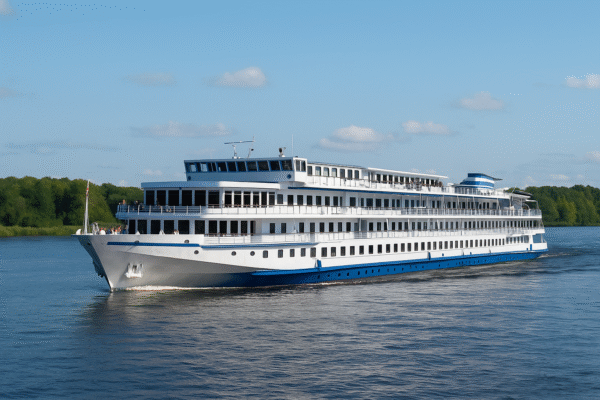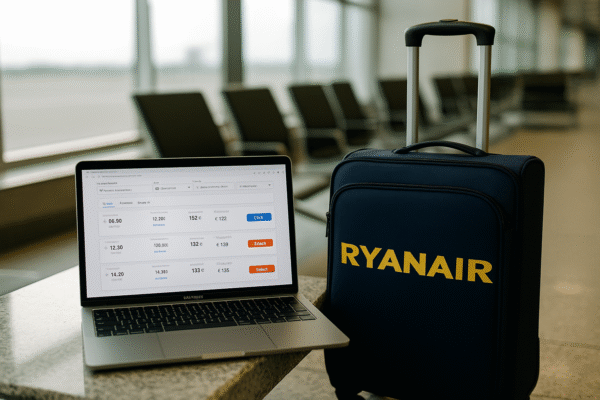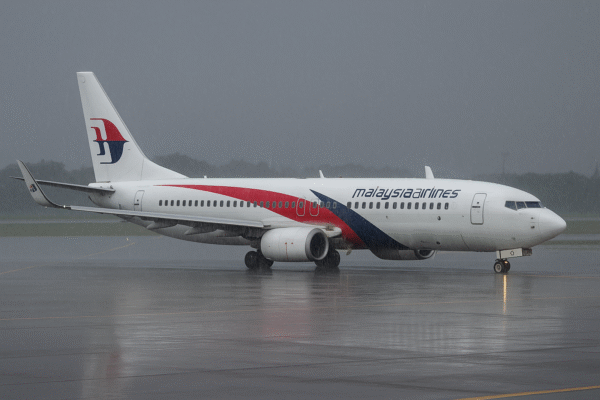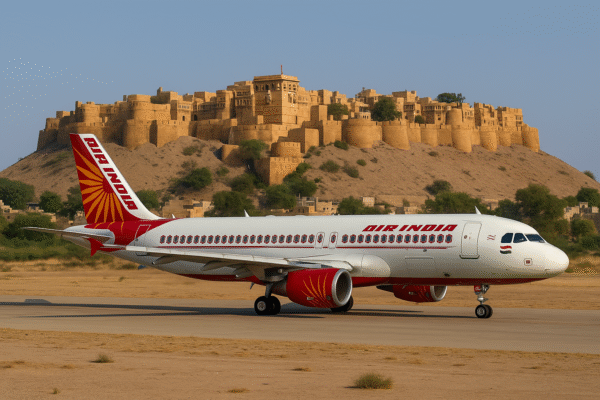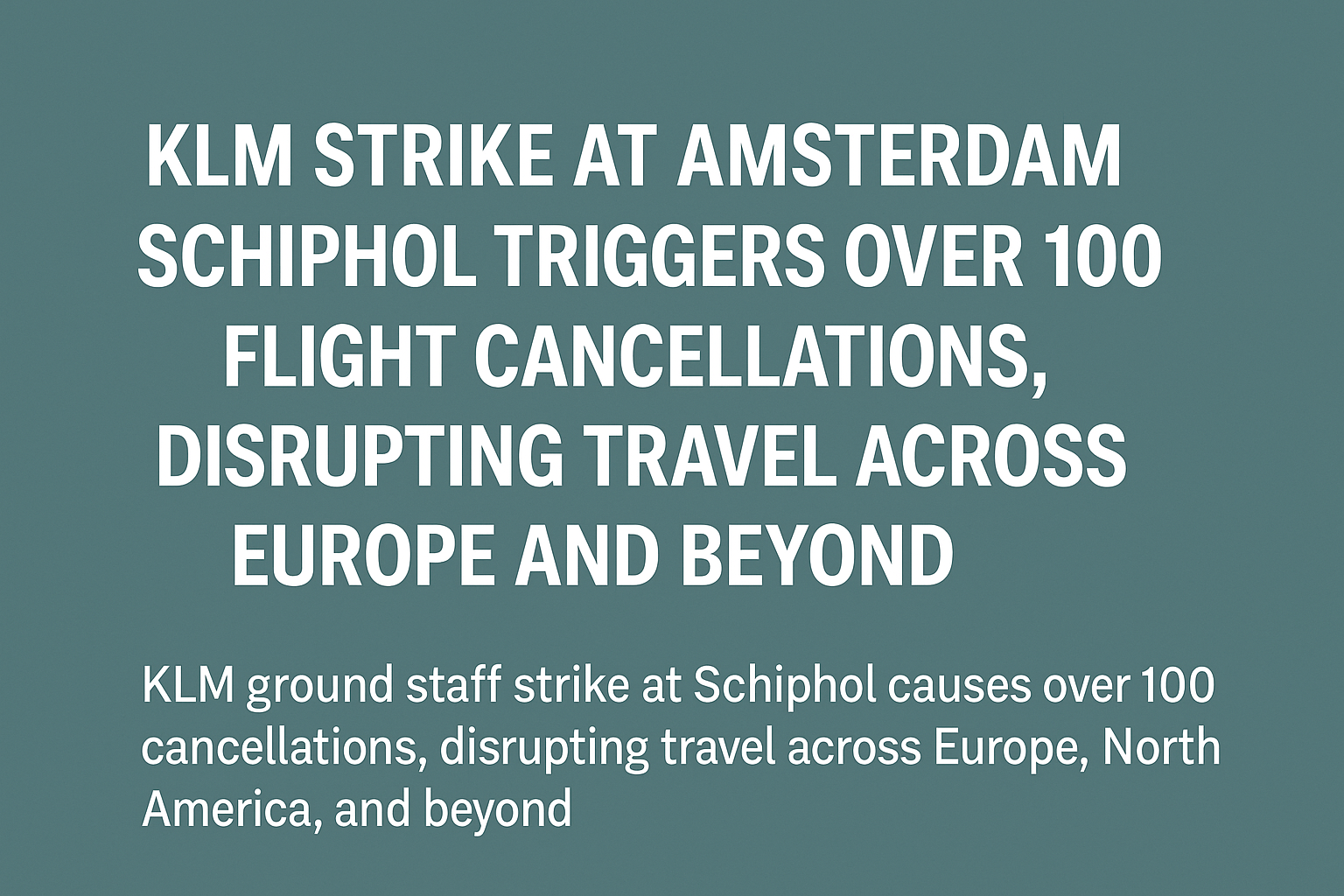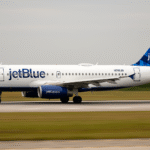Europe Faces Another Travel Setback
Europe’s aviation sector has once again been plunged into crisis as KLM ground staff staged a strike at Amsterdam Schiphol Airport, resulting in the cancellation of more than 100 flights. Thousands of travelers across continents—including those flying from the United States, Canada, France, Denmark, Greece, the United Kingdom, Croatia, and Italy—found themselves caught in the middle of severe disruption.
The two-hour walkout on September 10th, held from 08:00 to 10:00 CEST, was organized during morning peak hours, amplifying the impact on both long-haul and regional flights. Schiphol, one of Europe’s busiest hubs, is vital for international connections. The strike instantly created ripple effects across KLM’s extensive network, leaving passengers stranded, connections missed, and itineraries thrown into chaos.
The Roots of the Strike
The strike stems from a long-running dispute over a collective labour agreement (CLA) between KLM management and unions representing ground staff. While three unions accepted KLM’s offer of a 2.25% wage increase until 2026, two of the largest unions—CNV and FNV—rejected it outright.
Their objections are based on three key demands:
- Fairer Wages Amid Inflation: With rising living costs, the unions argue that the proposed increase fails to protect workers’ purchasing power. They insist on pay adjustments that reflect real inflation, ensuring that employees’ financial stability is not eroded.
- Heavy-Work Scheme: Baggage handlers, cargo loaders, and other physically demanding roles require recognition. The unions want provisions such as earlier retirement options and improved health benefits to safeguard the long-term well-being of staff performing strenuous work.
- Job Security: Workers are pushing for more permanent contracts to replace temporary arrangements. For many, stability and predictable employment are crucial for building a sustainable career and future.
CNV and FNV also accused KLM of failing to adequately engage with their proposals during negotiations, leaving strike action as their only leverage to push for change.
The Immediate Impact at Schiphol
During the strike, critical services such as baggage handling and check-in slowed to a crawl. Passengers reported lengthy queues at counters, delayed luggage drop-off, and uncertainty about boarding times. Although KLM confirmed that safety staff remained on standby and that flights would not be cancelled solely due to the strike, the reality on the ground was stark.
The temporary halt in operations created significant backlogs. Clearing the congestion took hours, and delays stretched well into the afternoon. For an airport that handles hundreds of departures daily, even a short strike created widespread ripple effects, from missed connections to cascading delays across the network.
Global Reach of the Disruption
The strike’s impact was not confined to Europe. Intercontinental flights to and from Amsterdam were also severely affected. Services connecting Houston, Los Angeles, San Francisco, Chicago, and Calgary were among those disrupted. Routes to Cape Town in South Africa and Al Maktoum in the United Arab Emirates were also hit.
Within Europe, cancellations and delays were widespread. Flights from Athens, Bucharest, Copenhagen, Madrid, Florence, Munich, Edinburgh, Manchester, Zurich, Oslo, and many more cities were grounded or delayed. In total, over 120 flights were cancelled at Schiphol, with KLM accounting for the majority.
For passengers, this meant uncertainty and frustration. Families on holiday, business travelers, and students returning to universities all faced difficult rebookings and hours of waiting.
The Legal and Historical Context
This is not the first time KLM has faced union resistance. Earlier attempts by CNV and FNV to organize strikes in June and July 2025 were blocked by Dutch courts, which cited safety and operational risks. The September strike, however, went ahead without legal intervention, marking a turning point in the escalating dispute.
KLM expressed disappointment, reiterating that its proposed agreement was fair and consistent with other unions’ expectations. Management characterized the strike as unnecessary and harmful to passengers. However, the unions remain steadfast, viewing the action as essential to secure meaningful improvements in pay, working conditions, and long-term stability.
Advice for Travelers
For those with flights scheduled around the strike, travel experts recommend:
- Arriving Early: Passengers should allow extra time at Schiphol for check-in and security during periods of industrial action.
- Checking Flight Status: Real-time updates through airline apps and Schiphol’s website are essential for staying informed.
- Rebooking Options: For shorter European journeys, train travel may be a viable alternative. Passengers should explore flexible options if delays are intolerable.
- Customer Service: Contacting KLM directly can help with rebooking or compensation inquiries, though wait times are expected to be long during disruptions.
The Broader Implications
Beyond the immediate inconvenience, the strike highlights the ongoing tensions between airlines and their workforce in a sector still recovering from the pandemic and facing rising operational costs. For KLM, a carrier deeply tied to Schiphol’s identity as a global hub, addressing these disputes is critical for maintaining reliability and passenger trust.
For travelers, the strike underscores the fragility of air travel in Europe, where staffing disputes, economic pressures, and airport congestion have repeatedly triggered disruptions in recent years.
Conclusion
The KLM strike at Amsterdam Schiphol is more than a temporary disruption; it is a clear sign of deeper challenges within Europe’s aviation industry. Over 100 flights were cancelled, thousands of passengers were affected, and international routes across North America, Europe, Africa, and Asia felt the shockwaves.
As negotiations continue, the future hinges on whether unions and KLM can find common ground. For now, passengers are left navigating another chapter in Europe’s ongoing cycle of travel turmoil, with Amsterdam once again at the center of aviation’s labour disputes.
For more travel news like this, keep reading Global Travel Wire











